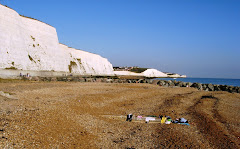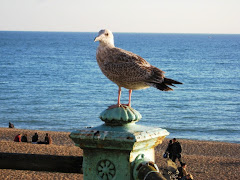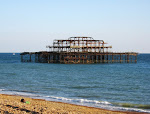
So, Christmas is over, and now begin the Boxing Day sales.
But before we begin to contemplate the best sales to look out for, let me ask a question: when did the January sales become the Boxing Day sales? Both BBC and ITV news talked about 'the traditional Boxing Day sales'. Traditional? Since when? For most of my life the sales began after the January New Year holiday, and it is only in the last decade that it has crept forward slowly as people have had longer holidays that have joined up Christmas and New Year. I can remember the slightly sarcastic comments made by people about the building trade having two weeks off at Christmas, whereas for many it seems to have become the norm.
The norm, that is, unless you work in retail. Here, the trend has been reversed: longer hours and shorter holidays, to satisfy the public craving for shopping as a leisure activity. The final bastion of Sunday opening was breached in 1994, although Christmas Day and Easter Sunday Day remain excluded from the legislation. Indeed, yesterday, on the way home from church, the centre of Brighton was eerily quiet, with just a few people out and taking in the Christmas Day air.
Anyway, despite of - or perhaps because of - the current credit crunch, the retail sector has gone overboard with its 'traditional Boxing Day' sales, with the news reporting huge, excited but frustrated queues at Selfridges in Oxford Street in particular, and busy mornings at Manchester's Trafford Centre and the Bluewater shopping centre in Kent.
As for me, well, I'm joining in a very different, but equally modern, post-Christmas rite: the escape to warmer climes, and the equally excitable but frustrating queues at Gatwick. Happy holidays.








